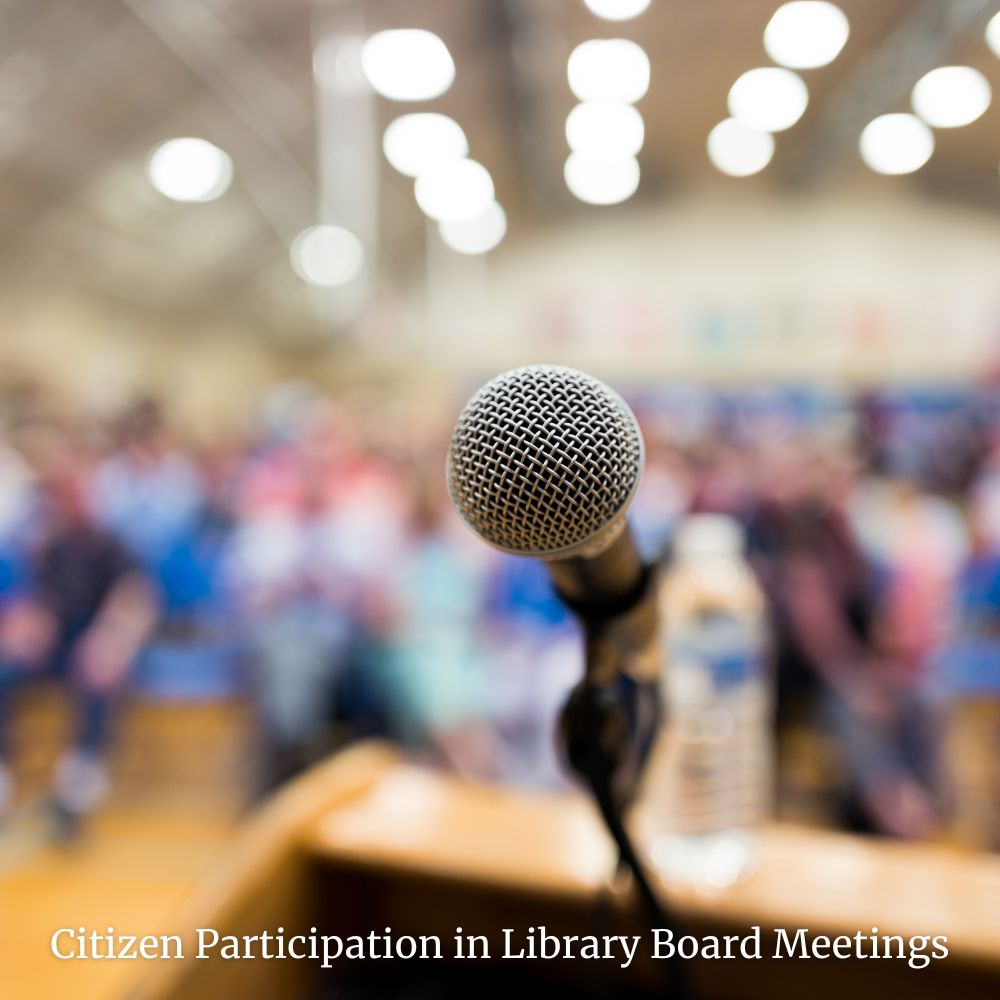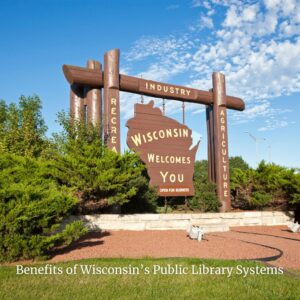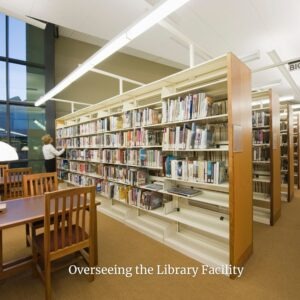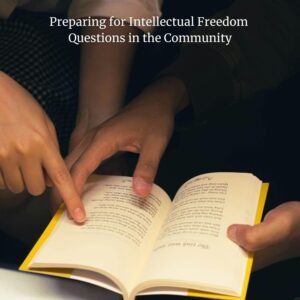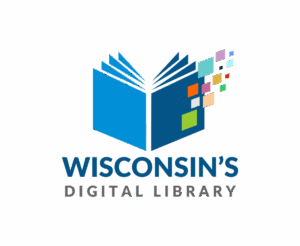Citizen Participation in Library Board Meetings
The Wisconsin Open Meetings Law grants citizens the right to attend and observe open session meetings of governmental bodies. The law does not require a governmental body to allow members of the public to speak or actively participate in the body’s meeting. A governmental body, such as a Library Board, has the discretion to decide whether and how much citizen participation it will allow during its meetings.
Wisconsin’s Open Meetings Law allows the Library Board to set aside a portion of the meeting as a public comment period or Open Forum. Such a period must be included on the meeting agenda. During such a period, the Board may receive information, comments, or concerns from the public. The public may comment on an item on the agenda or raise new topics that were not on the agenda. If the subject raised pertains to an item on the agenda, the Board can discuss and take formal action on the subject raised in the public comment period.
Additionally, some governing bodies establish rules governing public comment (e.g., time limit for each speaker) to balance the need to listen to the public’s concerns with the need to run meetings in an efficient and orderly manner.
Subjects Not on the Agenda
If a member of the public raises a subject that does not appear on the meeting agenda, the Board President should prohibit discussion and defer that subject to a later meeting where it can be identified on the agenda. Under Open Meetings Law, the Board must not take formal action on a subject if it was not included on the posted meeting agenda. The law is intended to allow the Library Board to be responsive to the community while still requiring advanced notice to the public of items on which the Board might act.
Additionally, the Board cannot use non-specific agenda items like “such other matters as are authorized by law,” “new business” or “old business” to sidestep the noticing requirement. The Wisconsin Open Meetings Law requires that every agenda of a meeting must give enough information so that it is reasonably likely that members of the public will understand the subject of discussion and possible action to be taken.
Rules of Decorum
Members of the public attending a board meeting are generally expected to adhere to rules of decorum to ensure the meeting is conducted in an orderly and respectful manner. These rules typically involve respectful communication, staying on topic, and avoiding disruptive behavior. It is important for the Board to clearly define what a disruption would be to ensure that members of the public attending a meeting will understand the expectations of the Board. Use language that is clear and lets attendees know that they will be asked to leave if they prevent the meeting from proceeding.
Please contact your library system for additional information or sample policies and procedures.
Wisconsin Open Meetings Law Compliance Guide, Wisconsin Department of Justice, March 2025.
League of Wisconsin Municipalities, Open Meeting Law FAQ 12
Wisconsin Statute sec. 19.84(2)
League of Wisconsin Municipalities, Open Meetings Law FAQ 8

